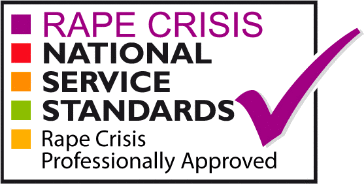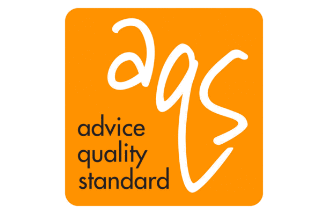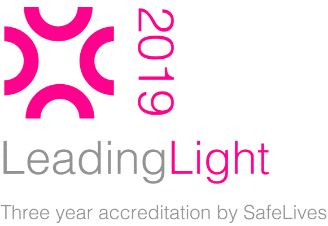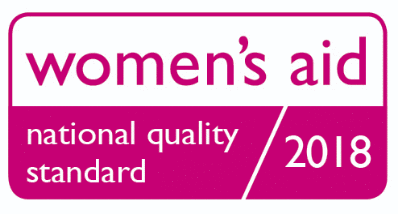If you are experiencing abuse from your partner or a family member, we understand deciding what to do can take time and is a long process. We have put together below some suggestions for you to consider in order to making yourself as safe as possible.
Remember you know your abuser best, so only do what you think will help, as following these suggestions is not a guarantee of safety, but could help improve it.
When in danger or an emergency always call 999
Staying safe if you are in an abusive relationship
- Plan an escape route – think about how you can get out as quickly and safely as possible by planning an escape route from every room in your home. Think about where you can go when leaving quickly so that you can call the police. Plan a place to meet with your children if you get separated.
- When an argument happens – think of a safe room in your home you can go too. Avoid where possible rooms where there are no exits and where there are objects which can be used as weapons i.e. bathroom, kitchen.
- Develop a ‘code word’ or ‘sign’ so that family and friends know when to call for help.
- If possible and without letting your partner know, starting putting away some money in case you need to leave in a hurry.
- Think about what you will say to your partner if they become violent. Use your judgement of the abuser to protect you and your children. You are in no way colluding with the abuser if you give them what they want in order to protect you and your children. Call the police as soon as it is safe to do so.
- Plan where you would go in an emergency, such as to your neighbour or close friend, but always have an alternative.
- Keep a list of useful numbers and safe people to contact, in a safe place; for example, the nia project, your local police community safety unit, a close friend, local refuges and support services.
- Teach your children what to do in an emergency – how to call 999 and be able to give the address but not to get involved – they should never use a phone in front of the abuser as this may endanger them
- If you are not able to get out of the house, barricade or lock yourself into a room, from which you can call the police and contact friends/family or neighbours.
- Pack an emergency bag so that it is ready if you need to leave in a hurry. This should ideally include; money, change of clothes, extra house/car keys, copies or originals of passports, marriage/birth certificates, any legal documents (especially showing jointly owned property and details in relation to immigration status), credit card and bank details, medication and any documents in relation to children. Keep them in a safe place such as with a friend or relative or hidden somewhere. Call 999 in the event of an emergency – think of alternative ways to keep safe if the police do not respond straight away
- Remember you can always go to a police station or social services for help!
Safety planning if you’re planning to leave
- Have an emergency bag packed, kept in a secret place, that is accessible so you can leave quickly.
- If possible, get important documents such as passports, bank statements, birth/marriage certificates copied and see if you can leave them with a trusted family member, friend. Do this before you plan to leave.
- Where possible arrange a safe place for you and your children to stay.
- Plan the time for leaving carefully and allow adequate time to get away safely. For example, plan to leave for when you know your partner is at work or away from the home for a long time.
- Possibly discuss matters with a solicitor prior to leaving in relation to child access or financial arrangements.
- Talk to someone you can trust about your plan, for example a trusted neighbour who can call the police if they hear a disturbance. If you do not know anyone ring a support service they may be able to help, you think things through and will provide you with practical and emotional support.
- Only tell people you trust where you will be. Lie if you have to – this will protect you and them.
- If the last number you called was a refuge, taxi or the place you are going to stay, dial another number – for example, the Speaking Clock (dial 123)
A planned escape is the safest way to leave a violent relationship
Safety planning if the relationship has ended
After the relationship is over, consider:
- If staying in the home, secure the premises e.g. changing locks, window locks, burglar alarm, and movement sensitive lights. Speak to changing the locks. You can get help to do this from your LA housing team and or call our helpline xxxx and ask to speak to an IDVA (Independent Domestic Violence Advocate) who can help you access this help.
- Getting an injunction from the court. Keep a copy with you at all time; ensure that one has been issued to the police. Tell people who take care of your children the names of those who have permission to pick them up. If you have an injunction that names your children, give their carers and their schools a copy of the order discussing safety plans for your children with them. This is important, but especially so in times when they are not with you.
- Telling neighbours that your partner no longer lives with you and ask them to contact the police if s/he is observed near your home or your children.
- Telling someone at work about your situation and ask for your calls to be screened.
- Changing your telephone number.
- Where possible avoid using the same shops, banks or other businesses that you used when you lived with your partner and change the routes you use to take your children to school.
- Accessing support services attending workshops and support groups to gain support and strengthen your relationships with other people.
Staying safe online
- Block or change numbers (only when it is safe to do so)
- Turn off location services such as ‘find my iPhone’ on smart phones.
How to guide for iPhone | How to guide for Android phone - Ensure that location services are also not activated on apps – for example facebook attaches a location to posts
- Delete and/or block your abusive partner on social media sites and don’t add anyone unknown.
- Ensure your social media sites are managed safely; for example changing your facebook settings so you can’t be found by using the search function/setting up new accounts which you only give to safe friends or family.
- Cover cameras on tablets/computers/phones in case perpetrators are able to hack them.
- If you can’t afford a new device you can restore the device to factory settings. Going in store to your provider can help you with this to check it’s done correctly.
- Get screenshots to keep a log of any threats occurring through social media where safe to do so.
- Delete any apps you don’t recognise.
- Routinely change passwords to emails and social media accounts.
Items to checklist
The following items are important and useful but are not essential to take with you if you need to leave in a hurry. You can always get help to get these items later with the support of the police.
- I.D.
- Birth Certificates
- Medical Cards
- Medication
- Address Book
- Favourite toys of children
- Benefit Books/ signing-on details
- School info
- Keys
- Driver’s license
- Passports
- Immigration papers
- Insurance Papers
- Housing Details
- Divorce papers
- Court injunction/Court undertaking etc





